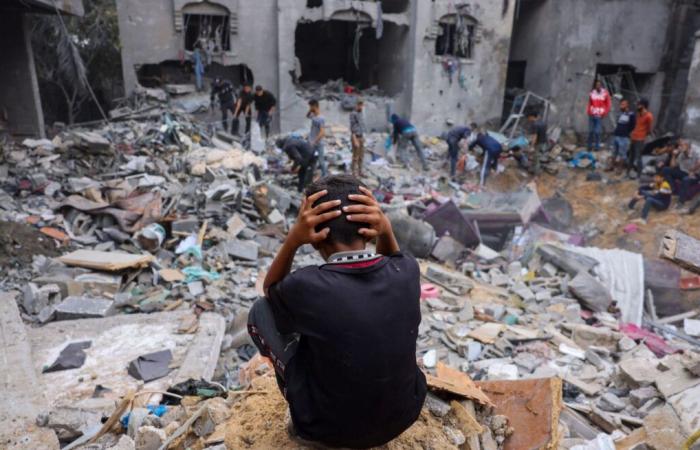
Armed conflicts and escalating geoeconomic tensions will be the main dangers facing the world in the coming months, fears the World Economic Forum (WEF), or Davos Forum. It will also not make things easier in terms of environmental risks, which remain the greatest long-term threat.
“We are unfortunately experiencing a record number of conflicts in the world,” Mirek Dušek, a WEF official, noted at a press conference on Wednesday, quoted by Agence France-Presse.
Direct military conflicts between countries or through intermediary countries, civil wars, coups d’état and terrorist attacks are, “by far”, the most important and serious dangers facing the world this year and the year next year, concludes the Davos Forum in the 20e edition of its annual report on global risks, which had just been unveiled.
Russia’s invasion of Ukraine and the armed struggles led by Israel in the Palestinian Territories, Lebanon and against Iran, but also the tragedies in Sudan and Somalia, as well as the growing tension between Taiwan and China or between the United States and China, are just examples of a world where the sound of boots is increasingly deafening and where the number of armed conflicts has been increasing for around fifteen years.
Established from a large survey carried out among business people, experts and observers from different circles around the world, the ranking of the main global risks over a horizon of one year, two years and ten years has also seen other phenomena rise in the rankings betraying “a world marked by increasingly deep divisions”. This is the case of “geoeconomic clashes”, which ranks third among the greatest dangers this year, just behind “extreme climatic events” and ahead of “disinformation and misinformation”.
An escalation of hostile economic measures
This deleterious context results in “supercharged economic tensions” which lead to an escalation, between countries, of hostile economic measures, including the recent threats of the next American president, Donald Trump, of trade tariffs against Canada, Mexico and the China are just the latest examples. The number of such damaging economic interventions has jumped from 600 in 2017 to more than 3,000 each year since 2022.
This rise in protectionism and economic nationalism does not only take the form of tariffs, explains the Davos Forum report. In fact, two-thirds of the new measures that have hampered trade between countries in the last five years have taken the form of subsidies.
This dynamic of global fragmentation weakens the likelihood of economic and political cooperation between countries, cooperation which will be essential to confront several of the threats weighing on the world, starting with the green transition, write the authors of the report.
Environmental issues have been at the top of the WEF’s ranking of the main global risks in the short term, but especially in the long term, for a good ten years. They even monopolize the top four places this year for the main threats over a 10-year horizon, with extreme climate events coming in first place, followed by biodiversity loss and ecosystem collapse (2e), the disruption of critical planetary systems (3e) and shortages of natural resources (4e). Pollution follows not far behind, in 10e place on 33 environmental, economic, geopolitical, social and technological risks.
In fact, several risks are closely linked, the WEF report explains each year. As has already been mentioned, for example, our difficulty in tackling climate change more seriously is due, among other things, to the rise in geopolitical tensions which arise from a growing frustration and polarization of populations in the face of widening inequalities. , tensions that are exacerbated by social media and the disinformation they spread.
Climate change is one of the four major “structural forces” characterizing the current global context, say experts associated with the WEF report. The other three forces are the acceleration of technological change, changes in the sharing of geostrategic powers and the aging of the population.
See you in Davos
The 53e edition of the Davos Forum, on the theme of “collaboration in the intelligent era”, will be held from January 20 to 24 in the prestigious ski resort nestled in the hollow of the Swiss Alps. Nearly 3,000 participants from more than 130 countries are expected, including around sixty heads of state and government.
More than 900 experts were surveyed between September 2 and October 18 by the authors of the global risks report. At 60% of men, and a large part coming from Europe (40%) or North America (16%), more than a third of these respondents (36%) came from the business world, with the others coming from notably from the research sector (19%), governments (17%), NGOs (13%) or international institutions (12%).





